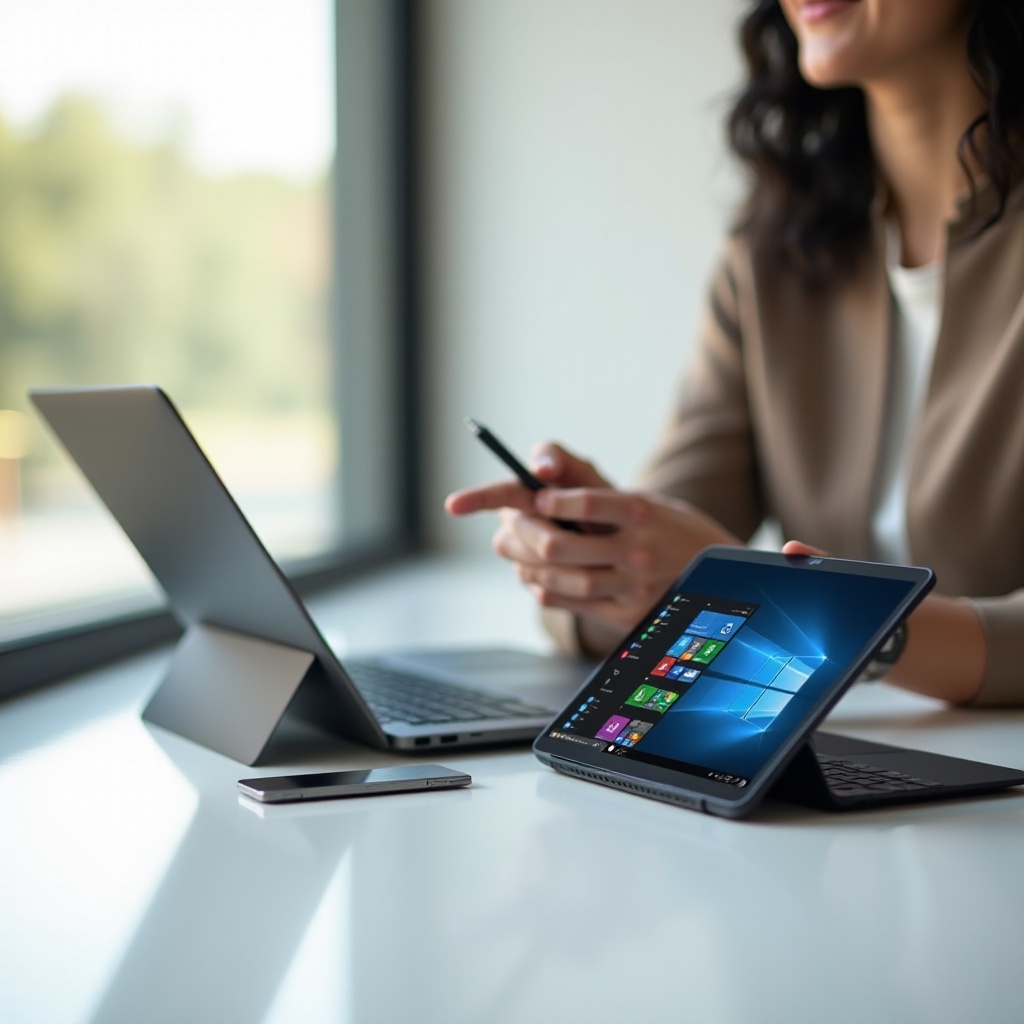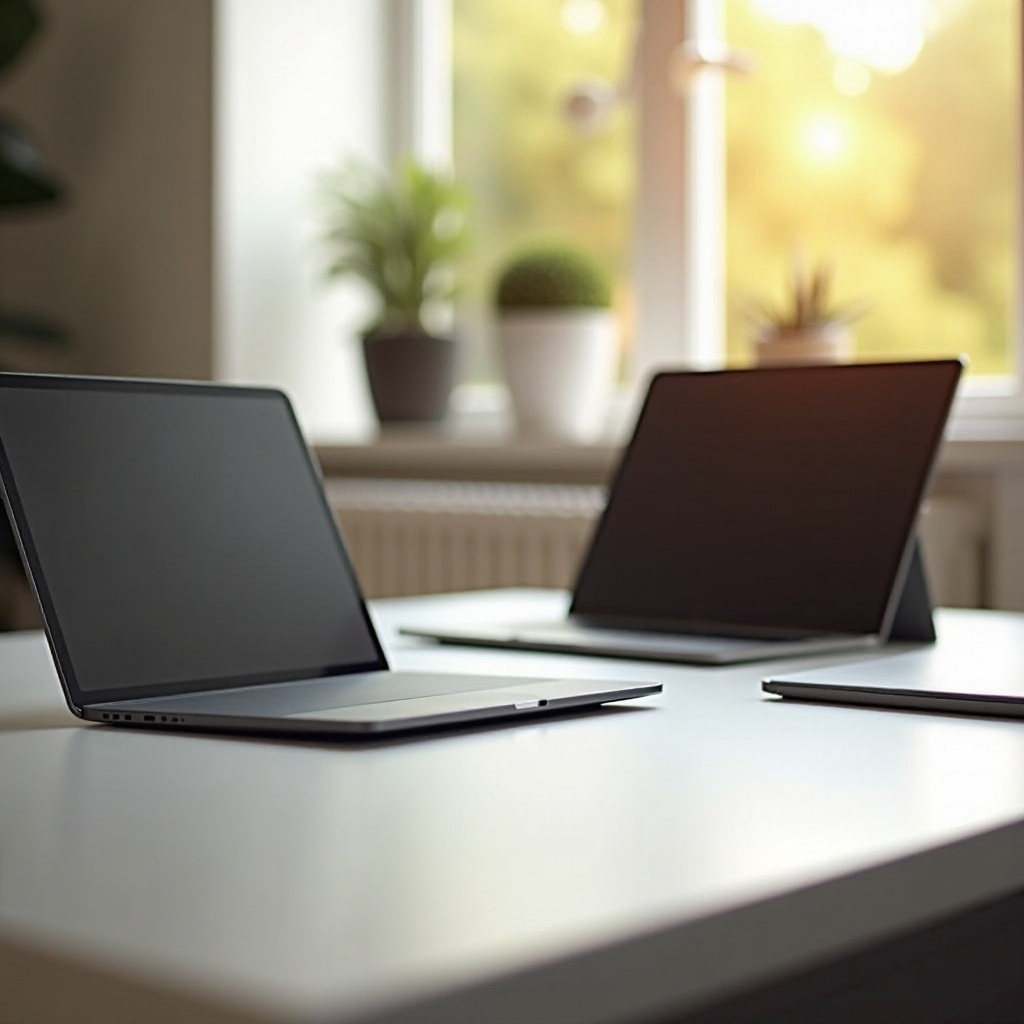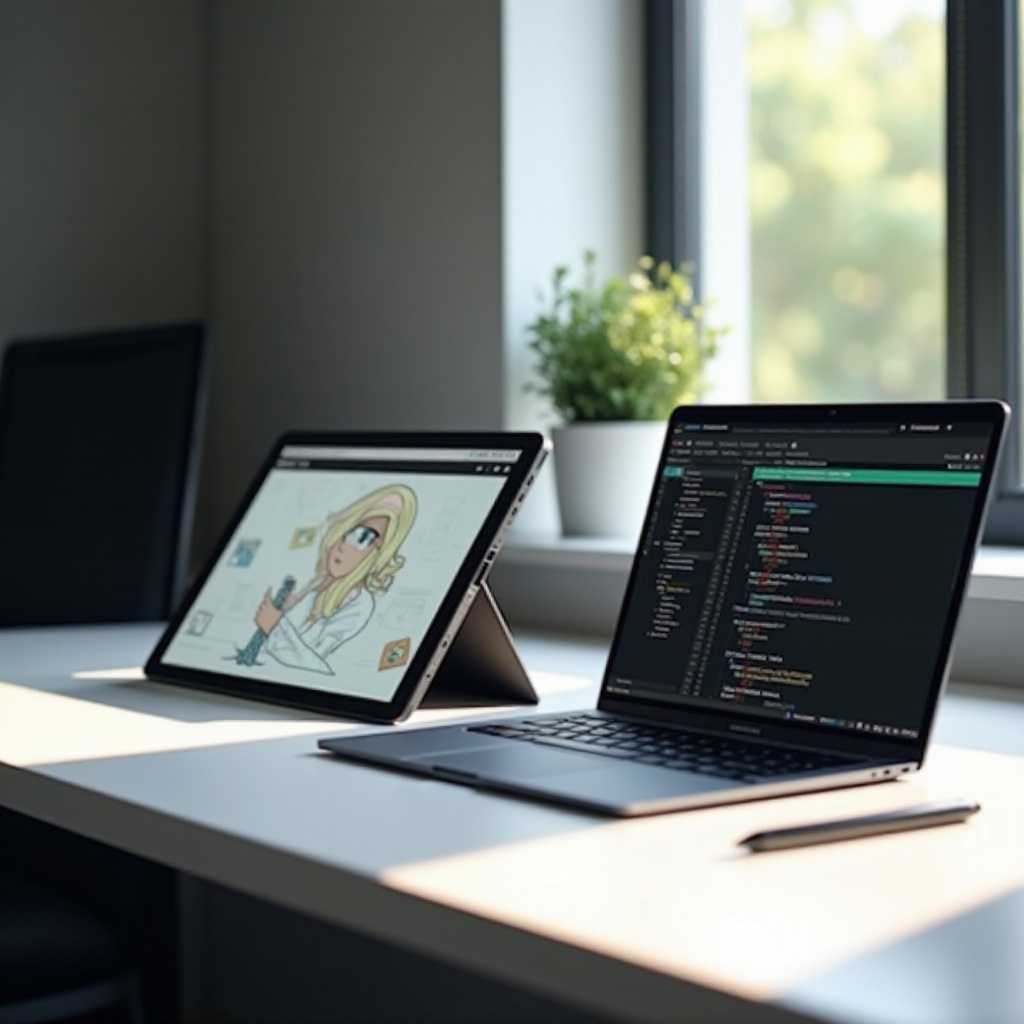Introduction
Choosing the right device can be a challenging task. With technology constantly evolving, new tablets and notebooks are introduced each year, each with unique capabilities suited for various tasks. This guide will help you decide between a tablet or a notebook, ensuring you make an informed choice that fits your needs in 2024.

Tablets vs. Notebooks: Definitions and Differences
Understanding the fundamental differences between tablets and notebooks is essential. Tablets are compact, touchscreen devices primarily designed for media consumption, light computing tasks, and portability. They typically run on mobile operating systems like iOS or Android.
Notebooks, conversely, are traditional laptops designed for more intensive tasks. They feature physical keyboards and run on full-fledged operating systems such as Windows or macOS, offering greater versatility in software and productivity tools.
While tablets excel in convenience and portability, notebooks provide robust performance suitable for professional and demanding applications. Knowing these key distinctions sets the stage for comparing their performance, usability, and other vital attributes.
Performance and Usability
When evaluating performance, notebooks generally have the upper hand due to superior hardware specifications, including powerful CPUs, more RAM, and better graphics capabilities. This makes them ideal for tasks demanding significant computational power, such as video editing, software development, and gaming.
Tablets, though less powerful, are optimized for smoother user experience for simpler tasks like browsing the internet, streaming videos, and using apps. Their touchscreen interface offers intuitive usability, making them excellent for casual use.
However, high-performance tablets with detachable keyboards and styluses are bridging the gap, providing a blend of power and convenience suitable for tasks like digital art, note-taking, and some degree of multitasking.
Portability and Convenience
Portability stands out as one of the key advantages of tablets. Their lightweight, compact nature makes them extremely easy to carry around, making them a favorite for travelers, students, and professionals who need to work on the go.
Notebooks, despite being bulkier, offer more convenience in terms of connectivity options, including multiple USB ports, HDMI, and often higher storage capacity. They are also better suited for creating documents and working long hours due to their larger screens and ergonomic keyboard layouts.
When making a choice based on portability, consider how often you need to transport the device and whether those additional connectivity options and ergonomic features of laptops are necessary for your usage.

Software and Applications
The software ecosystem plays a crucial role in determining the choice between a tablet and a notebook. Tablets run on mobile operating systems and have access to a vast range of apps through app stores. These apps are generally optimized for touch use and include popular software for photography, drawing, note-taking, and media consumption.
Notebooks, on the other hand, run full desktop operating systems, providing access to a broader range of professional-grade software. They support advanced applications required for coding, graphic design, video editing, and more complex digital tasks. The ability to run multiple applications simultaneously with ease is enhanced by better multitasking capabilities in notebooks.
The choice between the two should hinge on the specific software and applications you need for your tasks. If you require mobile app flexibility, a tablet might be more suitable, whereas a notebook would be essential for full-scale software use.
Use Cases: Who Needs What?
Different users have different needs that dictate their choice of device:
- Students: Tablets are great for reading, note-taking, and casual use. A notebook may be necessary for more intensive coursework or research projects.
- Professionals: Notebooks are ideal for those who require comprehensive productivity tools, multitasking capabilities, and professional software.
- Travelers: Tablets are perfect for frequent travelers due to their portability and long battery life. They suffice for basic computing tasks on the move.
- Creatives: Tablets equipped with styluses are increasingly popular among digital artists for sketching and illustration. However, notebooks are still the go-to for tasks requiring high processing power like graphic design and video editing.

Top Tablets and Notebooks in 2024
Here are the top picks for tablets and notebooks that stand out in 2024 based on performance, usability, and user reviews:
Top Tablets:
1. iPad Pro 2024: Offers exceptional performance with Apple’s M-series chips and an unmatched display quality, ideal for both work and entertainment.
2. Samsung Galaxy Tab S8: Known for its versatility, stunning display, and S Pen integration, it is great for productivity and creative tasks.
3. Microsoft Surface Pro 9: Bridges the gap between a tablet and a notebook with a detachable keyboard, running Windows OS for full productivity software access.
Top Notebooks:
1. MacBook Pro 2024: Continues to be a powerhouse with Apple’s latest M3 chip, perfect for professionals demanding high performance for video editing and software development.
2. Dell XPS 15: Offers robust performance, premium build quality, and an excellent display, making it suitable for a wide range of professional tasks.
3. HP Spectre x360: Features a convertible design, great battery life, and solid performance, making it a versatile choice for professionals and students alike.
Conclusion
Choosing between a tablet and a notebook in 2024 comes down to understanding your specific needs and how each device’s characteristics align with them. Tablets offer exceptional portability and convenience, whereas notebooks provide the performance and software flexibility required for more demanding tasks. Evaluate your core requirements, and refer to top-rated models to ensure you make a well-informed decision.
Frequently Asked Questions
What should I consider when choosing between a tablet and a notebook?
Consider factors such as performance needs, portability, the type of software you use, and your primary use cases.
Are tablets good for professional work?
Tablets have come a long way and are now capable of handling professional tasks, especially with accessories like keyboards and styluses. However, for more intensive software use, notebooks are preferable.
How long do tablets generally last compared to notebooks?
On average, tablets last about 3-5 years, while notebooks can last 4-7 years, depending on usage and hardware maintenance.